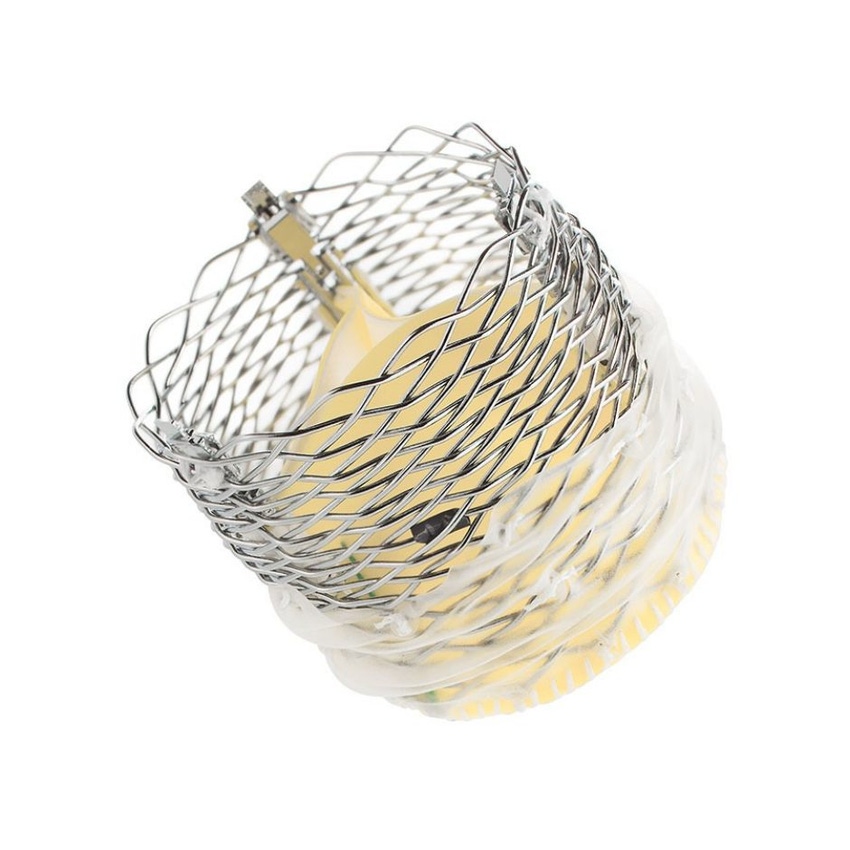Boston Scientific revealed that the Lotus Edge TAVR device, one of the most watched products in its pipeline, won't be on the market until 2019.
February 2, 2018

Boston Scientific confirmed it will keep its Lotus Edge transcatheter aortic valve replacement (TAVR) device off the market in Europe until 2019. The Marlborough, MA-based company addressed the beleaguered product’s future during its fourth-quarter 2017 earnings call earlier this week.
The company initially secured CE mark for the Lotus Edge valves in September 2016 but has yet to gain FDA approval for the device.
“Regarding our Lotus Edge TAVR valve platform … our goal is to launch Lotus Edge in the U.S. and European markets in 2019,” Mike Mahoney, president and CEO of Boston Scientific, said during an earnings call according to a Seeking Alpha transcript.
The Lotus Edge for TAVR may be one of the most watched products in Boston Scientific's pipeline. The device has drawn interest from the medical and Wall Street analyst communities because the current generation of the valve, Lotus, is known for having low rates of paravalvular leak (PVL). The Lotus Edge has been described as being designed to maintain those low PVL rates while also reducing permanent pacemaker implant rates with its Depth Guard technology.
However, Boston Scientific’s Lotus Edge has been plagued with issues for a little more than a year now. In February of 2017, the company pulled all of its Lotus valves from the market based on reports of a mechanical mishap with a pin connecting the valve to the delivery system.
The company then announced in November 2017 that the Lotus Edge would be delayed again. News of the delay shaved $2.9 billion off of Boston Scientific’s market capitalization.
“Boston Scientific continues to work to resolve the Lotus design verification challenges and while it has made progress, management no longer plans to share any interim technical or testing updates,” said Mike Matson, an analyst with Needham and Co. LLC.
The company is also developing the Acurate valve, a second TAVR option. Boston Scientific gained access to Acurate when it closed its $435 million acquisition of Symetis.
There has been speculation the company might forgo work on the Lotus Edge and instead focus on Acurate.
Company executives shot down the notion during the most recent earnings call.
“We’re very bullish on Acurate, Mahoney said during the call. “We aim to bring Lotus to the market in 2019.”
Lotus Edge’s delay leaves Dublin-based Medtronic and Irvine, CA-based Edwards Lifesciences as the only two companies that have approval for TAVR devices.
Edwards is a pioneer of TAVR, having garnered FDA approval for its Sapien Valve in 2011. Medtronic was able to get into the TAVR market through its more than $700 million acquisition of Corevalve in 2009.
Boston Scientific rounded out the Lotus announcement with strong news for its 4Q17 earnings. The company brought in about $2.41 billion in sales, topping analysts’ estimates of $2.37 billion for the quarter.
The company said it now sees $9.65 billion to $9.8 billion in revenue, above analysts’ model of $9.59 billion for 2018.
About the Author(s)
You May Also Like




